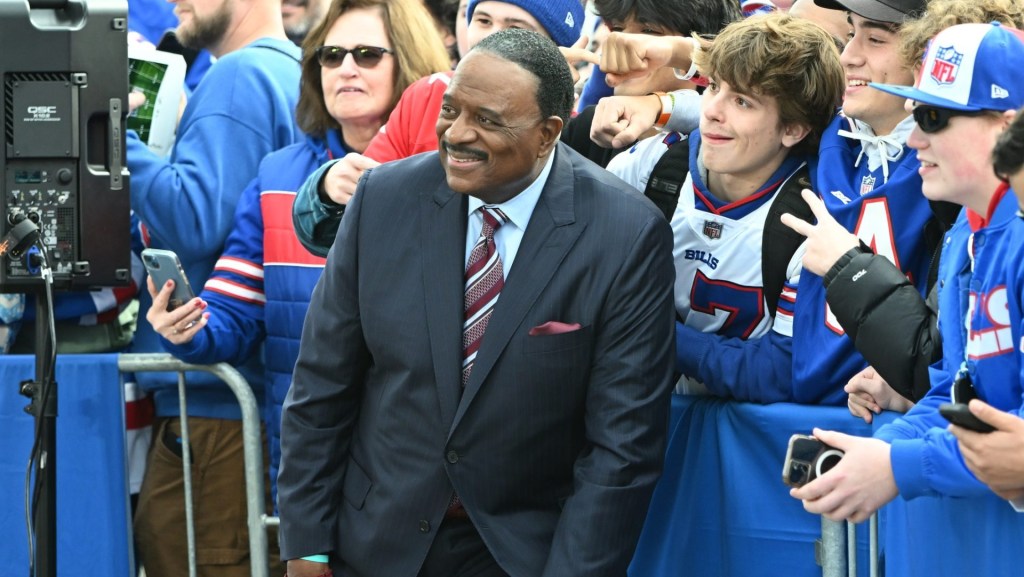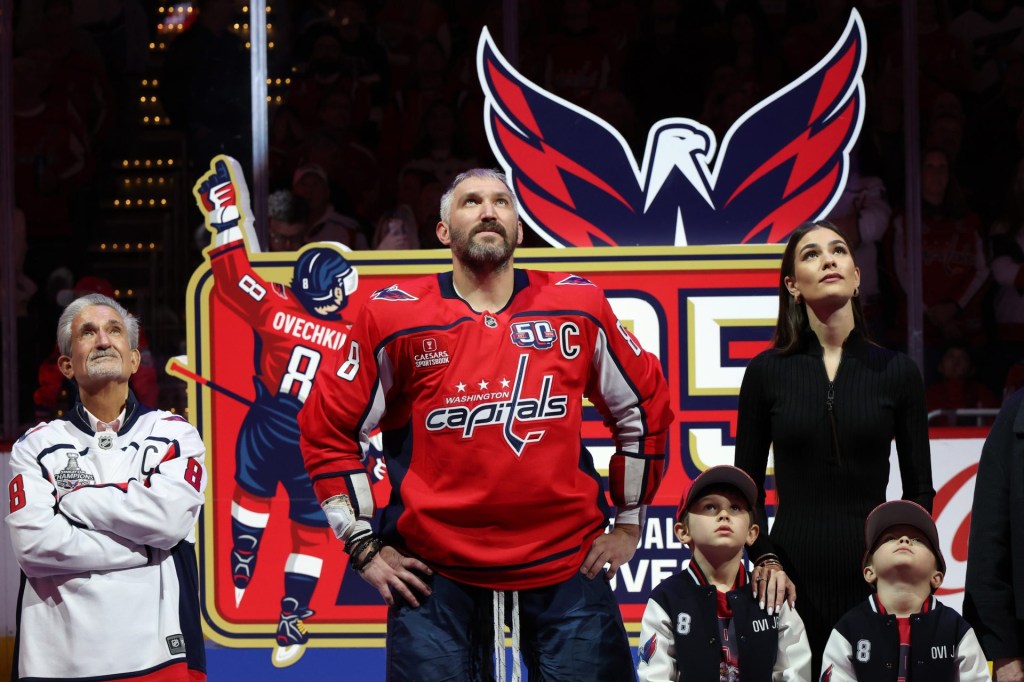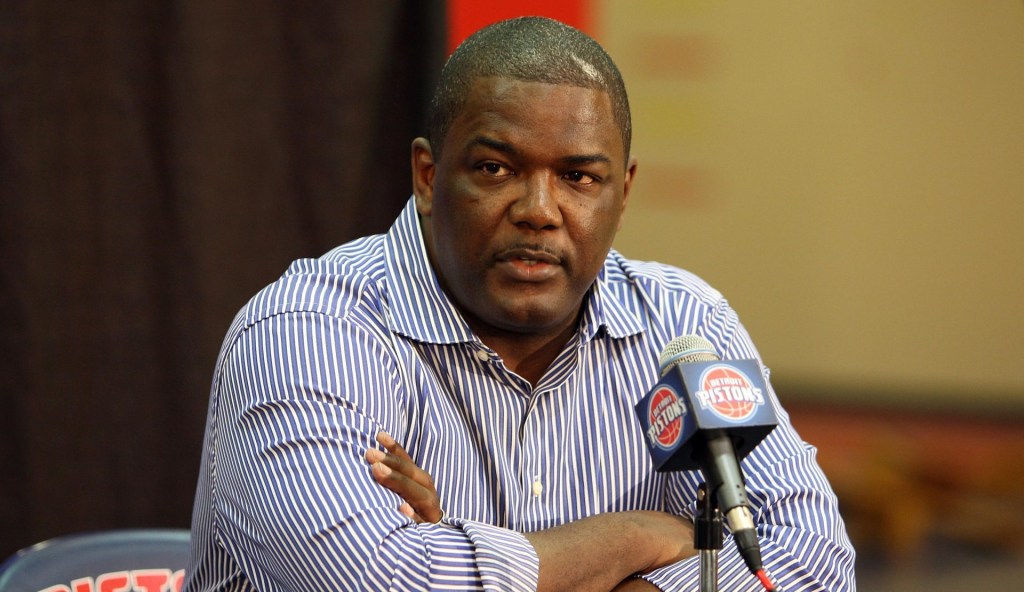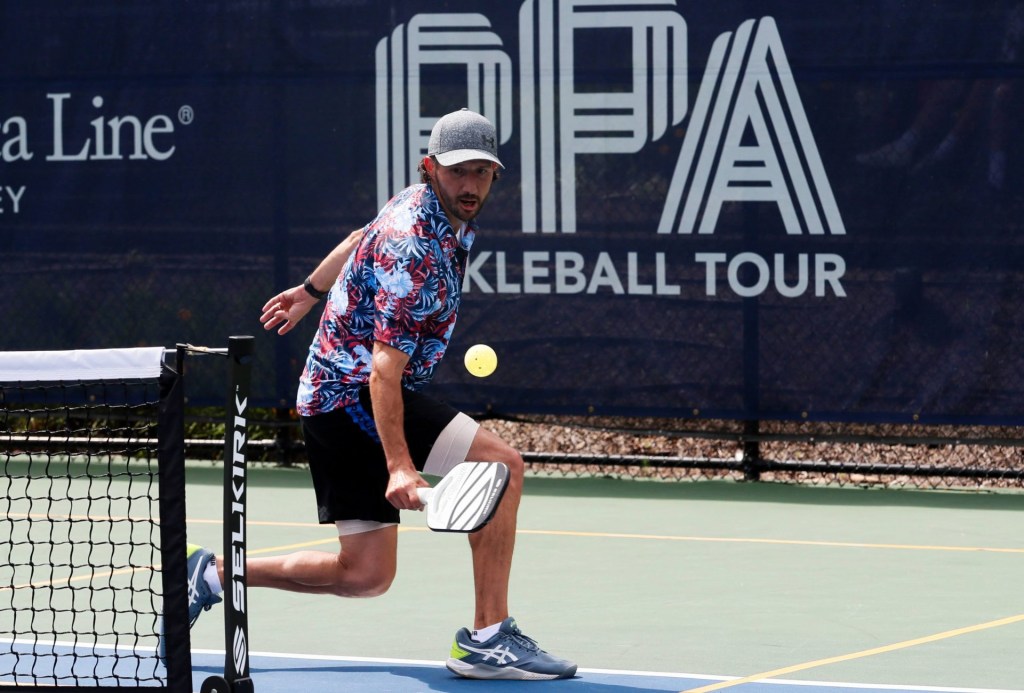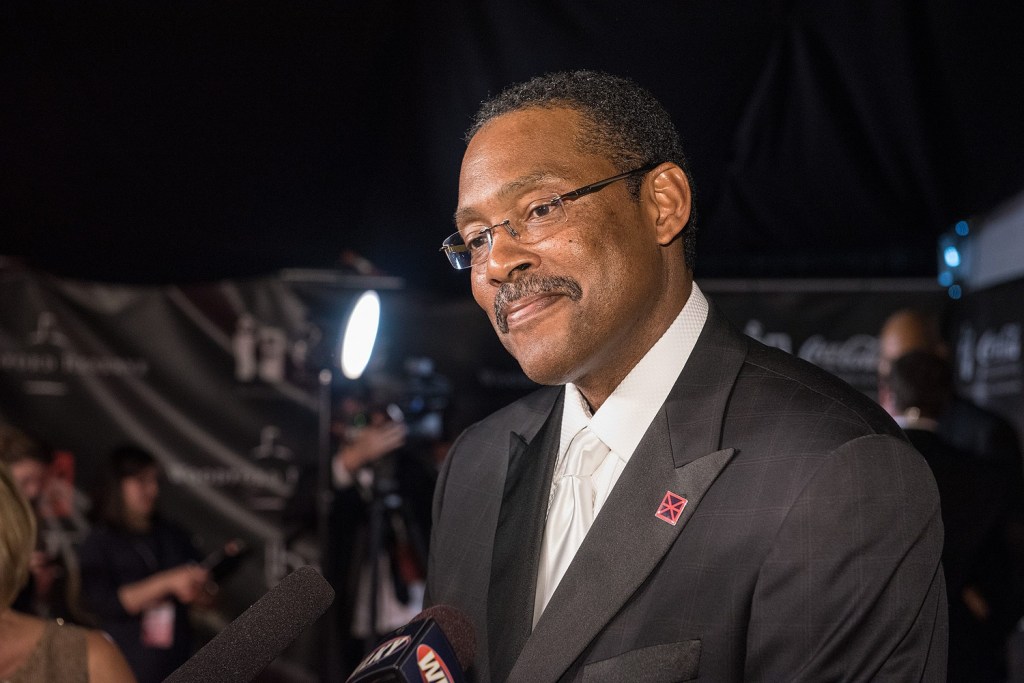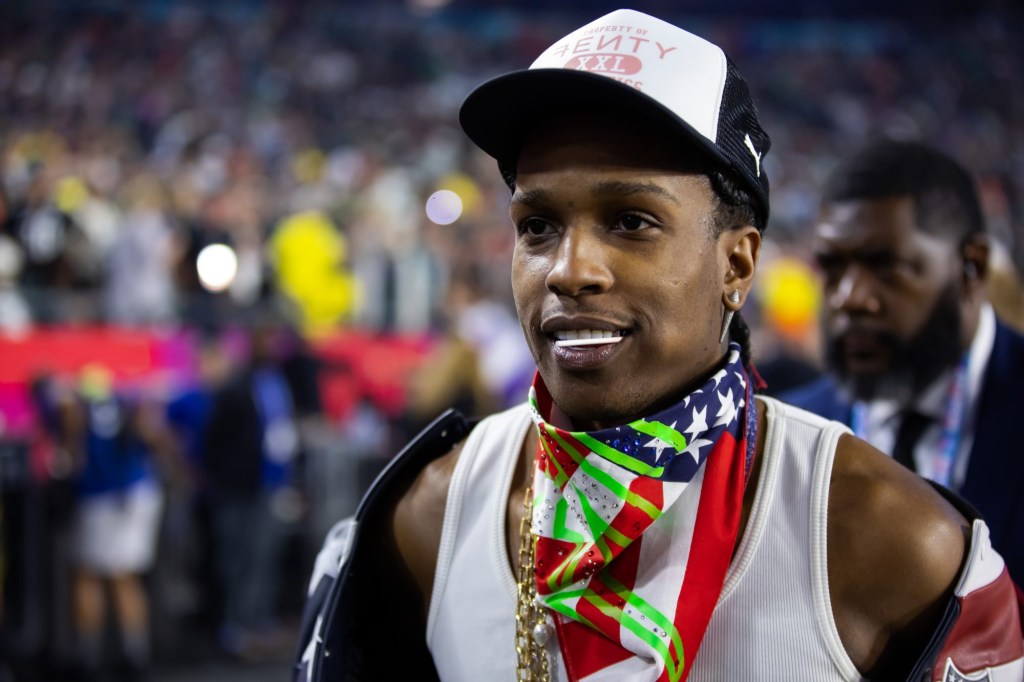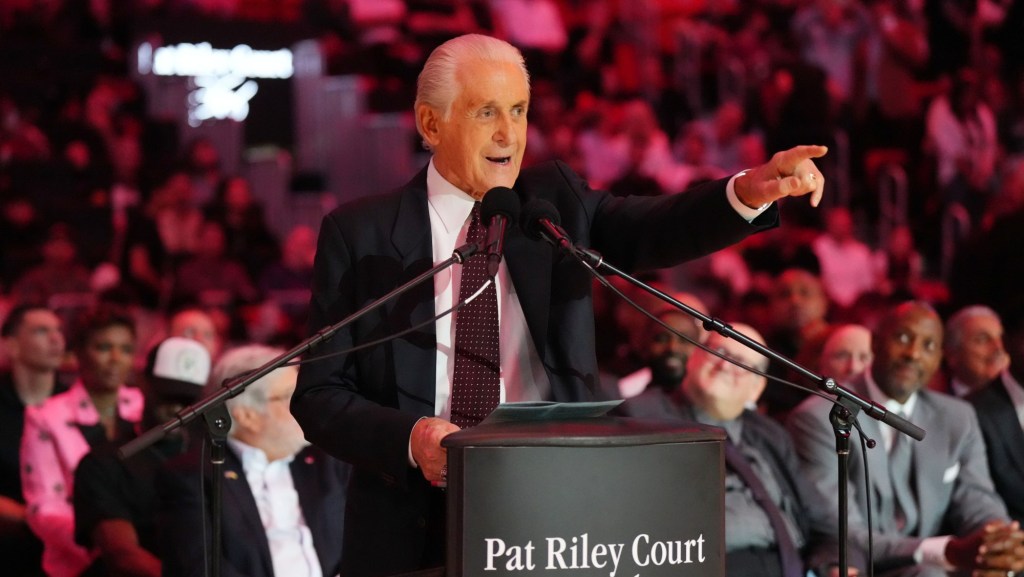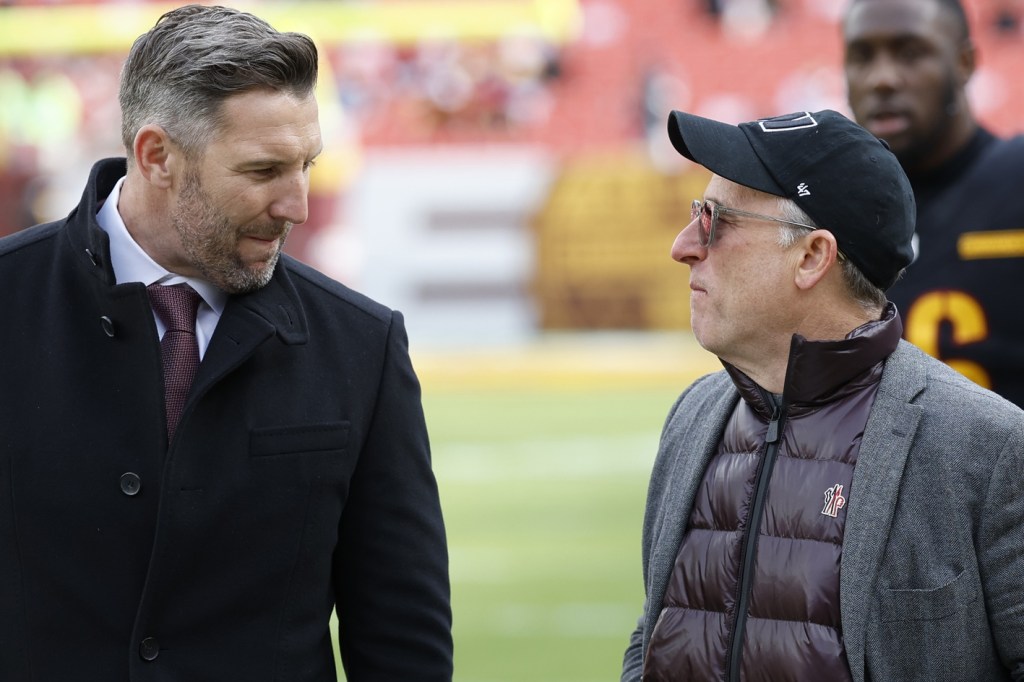Early-stage venture capital firm Will Ventures — which calls itself the first venture capital fund focused solely on the sports and sports-adjacent space — launched in September. The firm’s thesis centers on identifying the “next wave” of sports-related innovations that can alter everyday life.
Will Ventures was co-founded by former Harvard football players Brian Reilly and Isaiah Kacyvenski — the latter played in the NFL in the early 2000s, primarily with the Seattle Seahawks. It employs an institutionally- and research-backed approach to investing across health — connected fitness, nutrition, telehealth — and media, like esports, online gaming, mixed reality and streaming.
The duo was also among the co-founder of sports market research and advisory firm the Sports Innovation Lab.
The firm has already invested in 10 companies, including Jock MKT, a daily fantasy sports provider where users can purchase “shares” of professional athletes in real-time; Liteboxer, a connected fitness device for boxing workouts; and Custom Club, parent company to Retainer Club and Mouthguard Club, subscription services that provide custom-fitting retainers and mouthguards directly to customers by mail.
Front Office Sports caught up with Kacyvenski and Reilly to discuss the nature of sports and sports-adjacent companies that can impact everyday life, what’s next in the space, and the recent trend of athletes getting into investing.
FOS: Will Ventures has invested in 10 companies so far. Can you kind of shed some light on what types of companies those are, and what you’re looking at right now?
Brian Reilly: So at the highest level, the two biggest areas that we focus on are human performance — so think things like consumer health care, like fitness, like nutrition — and then the other side is media and entertainment. So things like esports and gaming, streaming, advertising tech, anywhere we can leverage our relationships with leagues agencies, large corporates to bring traction, brand exposure and early adopters to our portfolio companies. That’s really our focus, and we are opportunistically looking outside of those verticals, but those are sort of our key areas. And I think if you look at our portfolio today and 10 companies we invested in, it’s clear that we’re working hard to redefine what it means to be a sports-centric investor, because we aren’t investing in traditional sports and media businesses. We’re investing in high-growth technology and consumer businesses that would benefit from those relationships we have within sports and fitness. And so historically, if you look back in time, those companies have been the Pelotons of the world, the DraftKings, the Oculus Rifts, the Twitches of the world. So for us, we’ve identified how we can use this lens and this value creation, through the lens of sports, to be more generalist in our approach to investing.
Isaiah Kacyvenski: The times we’re in are unprecedented, and this goes back to a research-backed approach. We’ve been tracking a lot of areas for a long time, and we had a long-term view on areas that we’re bullish on, that we are excited about kind of mapped to pain points and opportunity areas. But some of those have been accelerated during the pandemic. And having a perspective around, and that ear point of view that Brian talks about, having a perspective on some of the areas of rapid acceleration and adoption. So from connected fitness, to health and wellness as a segment; we talked about esports gaming, fantasy sports as well as skill-based gaming or engagement having a hyper-focus. And then accelerated adoption around telehealth. And you’re getting kind of defining the markets broadly, but really showing use for it in sports and pushing new massive adjacent markets, or even amazing tech with the applicability in sports that you then go on to that big adjacent market. For us, you have to end in that big market. And that’s that difference between kind of niche profile versus venture capital investment profile.
FOS: What do you see as the next frontier for sports tech and sports adjacent industries that you’re looking to?
IK: As we look at precedents over time, you look at space exploration and innovation trickling down into a broader society. You look at military innovation and a lot of that innovation trickling down to a broader study. Sports actually does this in a more iterative fashion around that. And being able to kind of focus around that, we see many major areas that we look at on the frontier. Again, a lot of this is how you define looking at that. And the list is point exhaustive if you look at those two halves of the pieces that Brian talked about, which is quantified athlete truly as an extension of quantified self, that human performance side.
And that is really a factor of opening up the four walls of the hospital, taking guesswork out of how we feel and how we recover every single day. There’s a lot of different spokes to that wheel technology-wise all the way through nutrition-wise as well, right? Around how that, how we take guesswork, each of us, out of how we feel every single day using technology and creating feedback loops, truly, for that. And that’s a massive, massive opportunity, right? That frontier that is early adoption and kind of a motivation from elite athletes. But then that trickles down to our broader society, because at the end, we all want to feel our best, right? So that’s a key component of an overarching theme of what the future — all these adjacencies — looks like. And this is kind of a grey area of digital health, sports, fitness.
On the other side, as Brian talked about, is sports being the last captive audience. The last thing in our lives that we refuse to time shift. So the live sporting event, as we move from linear cable to OTT and streaming, and the personalization of digital media, looking at the various ways in which you can innovate around that from engagement to AR, VR, there’s a lot of different spokes to that wheel as well. So that’s where we look at the frontier from both the human performance side to the experience around the value of the event. And whether it’s pushing your body to the limits, and then having those benefits trickle down, or it’s you having a truly unique experience that you don’t want to watch ‘Monday Night Football’ on Tuesday night, right? So the value of that live sporting event is extremely, extremely valuable.
BR: Just to add to that, I think one of the key themes across both of our focus areas, human performance and media is driven by the abundance of data that we have today. And that’s personalization. If you look at health and wellness and health care more generally becoming more consumer-oriented, data allows that to be more personalized, as opposed to a one size fits all. And so if you look at the sorts of things that athletes are pressure testing today in health and wellness, it’s more personalized ways to train, to recover and improve our health and our performance. And we think that’s going to more broadly impact how we as consumers manage our health, how we improve our day-to-day wellbeing. I think the same can be said as, as Isaiah just alluded to, for media. The way that we’re consuming content, the way that content is generated and served up to us, that is becoming more personalized, too, based off of our preferences and the data that can be captured for consumers these days.
So I think as we look at the frontier of what’s coming out in sports tech, I think a lot of it’s being driven towards personalization. And a lot of that, by the way, has been in motion for quite some time. And it’s being accelerated by the current pandemic, because if you look at their current pandemic and what it’s done, it’s really accelerated a lot of the areas that we care most about. If you think about gaming, if you think about media and entertainment, if you think about health and wellness — it’s really accelerated the adoption of new technologies in sports and beyond. How we produce and distribute and experience content: that’s changed as a result of the pandemic. How athletes were training and preparing remotely: that’s changed as a result of the pandemic. So I think that those changes and those accelerations are going to ultimately impact how fans consume content, how we as consumers manage our own health and wellness. So we’re looking at personalization across these two key trends and we think a lot of that’s going to happen even faster as a result of what’s going on at the macro.
FOS: One major trend we’ve seen this year is professional athletes starting to take equity stakes and investing in companies like the ones you’ve discussed. What does that say about the sector and, and as you’ve already touched on a bit, about why now is the right for athletes to start buying into these companies as well?
BR: It’s great professional athletes are building their own brands and leveraging their brands to get into great technology companies. I think we now are living in a sporting age where younger fans are associating themselves more with particular athletes, as opposed to older generations who were very much enamored with certain teams. Who your team was who you followed and who you were loyal to. And actually the Sports Innovation Labs covered this pretty thoroughly, this concept of the ‘fluid fan.’ And how that’s changing how young audiences are watching sports and following sports. It’s more of this athlete-driven model, which I think in the end has enabled a lot of athletes to build pretty significant businesses around their personal brands. So it does seem like the way that media is changing, the way that the younger fan is changing their preferences, that’s enabled athletes to really build compelling brands and which has made it the right time for them to be investing in fast-growing technology companies.
IK: We’ve seen this firsthand, right? The old model of, ‘Hey, we’re going to have you as a marketing partner and you sit on the side there.’ And sort of being a true partner in the business equity holder, you’re saying, ‘Hey, I want to pull you in.’ And there’s an authentic play here where you have this alignment a lot of ways — you are going to add huge value and be a true partner in a business as well. We’ve done this at companies that we’ve been at, as well as personally, I’ve done this. From when I was drafted in 2002 to when I retired in 2008, I started investing; I learned everything I could about public and private markets from 2000 to 2003, from the ground up. I came from poverty, all those parts of my childhood — so I needed a formal base of knowledge to learn how to take care of my finances and money. And then in 2003, I started investing as a lone wolf, an angel investor, and then would spend my offseasons embedded into companies that I’d invested in, and then I’d be a fly on a wall. I learned how to take a concept, bring it to commercialization, et cetera. So I was doing that in 2003, fast forward, 17 years later — Brian and I very much had a front row seat as to how that was changing. Grew an angel portfolio to close to 30 companies over that time. So there’s a ton of learnings along the way that I had from that point to always having that feeling that there was something there — kind of defining players by more than what they are on the field
So what you start to see — and we’re already seeing this, and we’ve seen it for a long time — is you’re starting to see a more blended level of diversity of people with points of views, and that feel that they want to innovate on something. So more people at the table with all different types of points of view that could say, ‘Hey, this is a level of innovation,’ or ‘I’m going to add value.’ I think that’s very, very important and it’s something that we’re seeing across the board, but it makes sense, right? What should be the ultimate level playing field is sports. And the innovation in and around that should represent all the people that are in and around sports.
FOS: Just a couple of weeks ago, Malcolm Jenkins launched his venture capital fund with other NFL players and discussed how he is trying to educate other players about how to set themselves up financially for success after retirement. Isaiah, can you give some insight into what that’s like in the league, and what the league does or doesn’t do to help set players up, and what it was like for you to take that education into your own hands?
IK: I’ll keep it brief, because this is a full-blown conversation you could have. Long story short — I think this is across all leagues — but from both the union side, as well as kind of league side, this level of education and kind of an outpouring of resources around that and awareness to [Your playing career] is not going to last forever, be very, very cognizant around what your next steps could be.’ And right now is the perfect platform where you’re an active athlete, everyone wants to talk to you. I was never a superstar, I was a grinder, but the fact is I was still an active player.
So a lot of people would talk to me and really using that to behoove yourself, to set yourself up for some path to success after — so you actually have this running head start, have formed a point of view, what I like, what I don’t like, this formal base of knowledge — there’s an ability and willingness for people to just listen and to provide advice if you seek it right. And that’s one of the things I would look at, and I tell a lot of players across the board, is that you’re empowered to ask a ton of questions from people that have been there, done that, and spent their entire career in the space. And you can have this accelerated learning, right? Where you can start to just develop a perspective of what you like and what you don’t like around that.
So I think the education and empowerment to go ask questions, go learn, and see what you like and what you don’t like is the perfect opportunity when you’re an active player, because doors are wide open.
